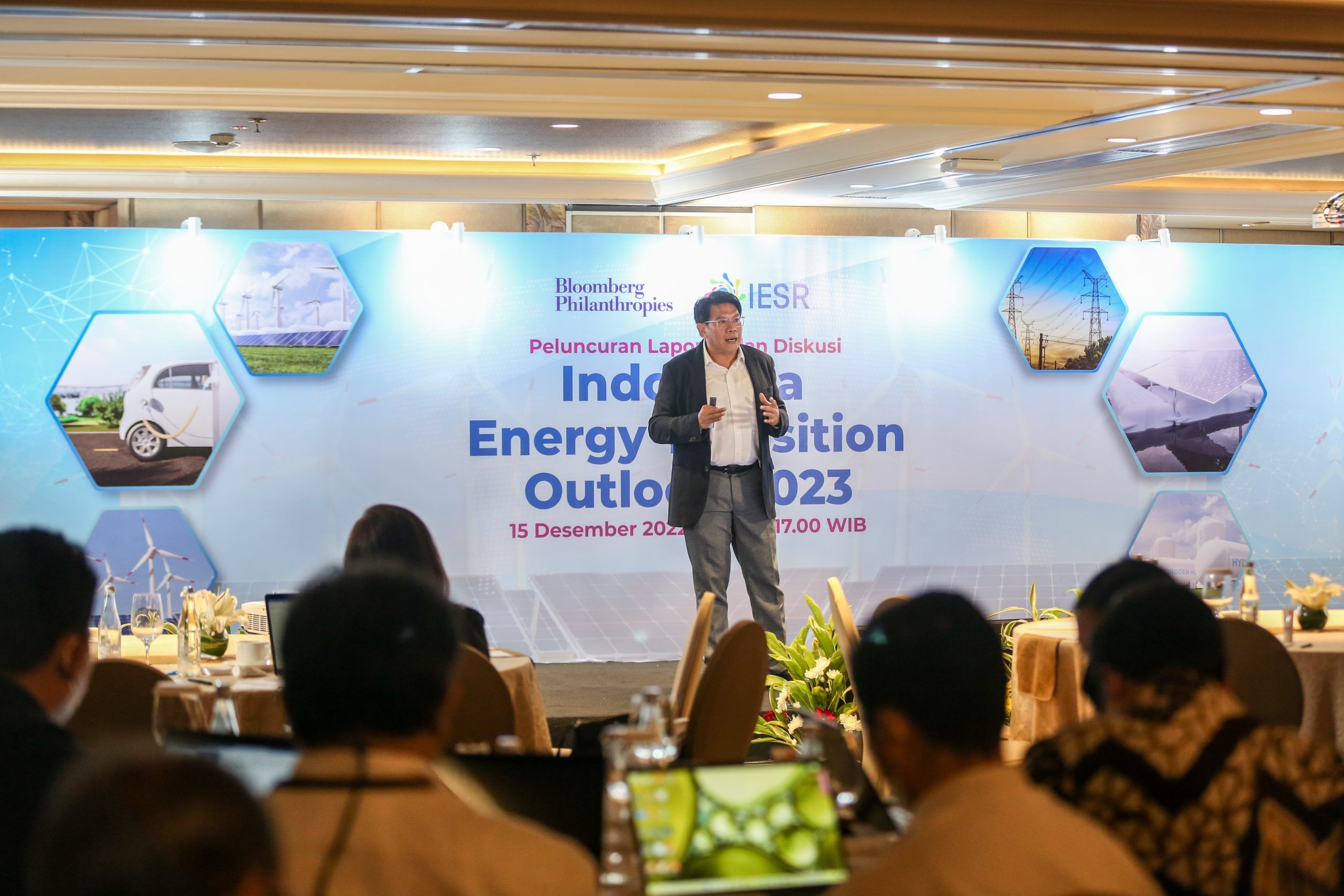Indonesia’s energy transition journey is entering a critical period considering that the available time is getting shorter. Indonesia’s closest target is to achieve 23% of the renewable energy mix by 2025. Meanwhile, the Just Energy Transition Partnership (JETP) agreement committed at the 2022 G20 Summit targets 34% of renewable energy by 2030.
In this increasingly shorter time span, the progress of the energy transition in Indonesia is unfortunately still stagnant. The Transition Readiness Framework developed by the Institute for Essential Services Reform (IESR) since 2020 records that in 2022 there are no significant developments in various energy transition sectors in Indonesia. Political commitment and energy transition policies, as well as the investment climate for renewable energy plants are in the low category. This can be interpreted as a challenge in the development of renewable energy as well as a factor that needs to be considered so that Indonesia does not fail to achieve its targets.
It is undeniable that there is an increase in the installed capacity of renewable energy every year. However, this additional capacity is not fast enough to meet Indonesia’s renewable energy capacity targets in an effort to limit the increase in the average global temperature below 1.5 degrees Celsius.
Why is it important for Indonesia to achieve its renewable energy targets? Indonesia is included in the top ten largest emitting countries in the world. Thus, Indonesia has a responsibility to reduce its greenhouse gas emissions significantly. Indonesia’s emissions are dominated by two sectors, namely land use change and the energy sector.
From the energy sector, emissions can be reduced drastically by focusing on the electricity sector by increasing the share of renewable energy generation and switching to electric systems (electrification) for vehicles and industry.
The Indonesia Energy Transition Outlook 2023 sees an opportunity to add renewable energy capacity in 2023. The existence of international assistance to reduce emissions, especially from the energy sector, must be a catalyst for accelerating renewable energy capacity as well as a means of creating a portfolio to attract more investment for renewable energy. To achieve net zero emissions status by 2050, Indonesia needs USD 25-30 million annually.
Systematic changes to improve the investment climate are needed. According to renewable energy developers, there are at least three points that need to be improved, namely the need for FiT (Fit in Tariff), fiscal incentives, and soft loans.

